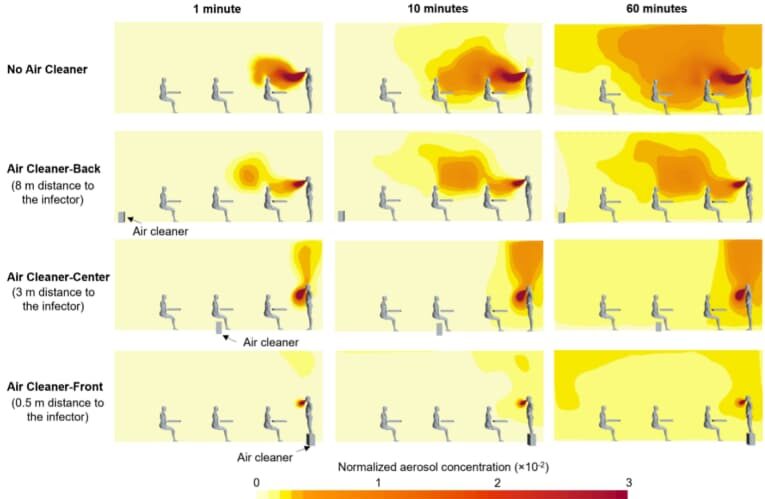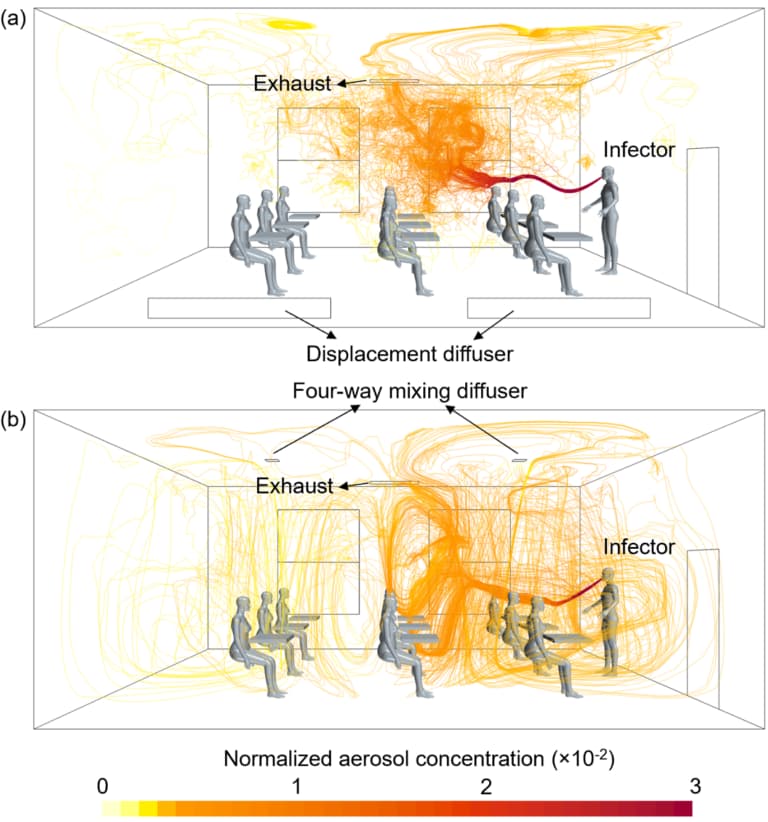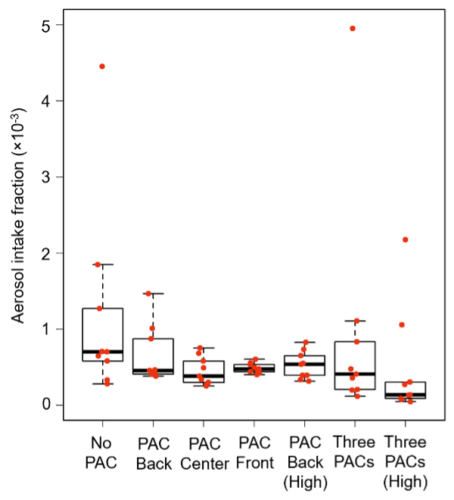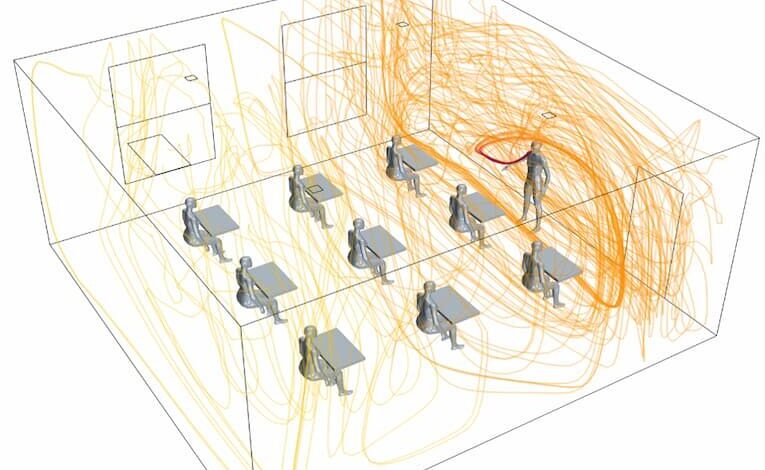The research team, led by Dr. Gen Pei, Research Associate with the Healthy Buildings Program, developed a Computational Fluid Dynamics (CFD) model to evaluate how portable air cleaners (PACs) help remove airborne pathogens and mitigate disease transmission in occupied classrooms.
The recent pandemic underscored the importance of maintaining safe indoor environments for students and teachers by providing adequate clean air in classrooms. PACs can effectively complement ventilation systems by enhancing overall air circulation and reducing pathogen spread in classrooms and beyond. The team’s CFD models offer important insights into airborne pathogen diffusion and demonstrate how PACs effectively mitigate virus spread in classrooms, ensuring the health and well-being of students and teachers.

Key takeaways
- PACs work: Placing PACs in classrooms can significantly reduce the spread of airborne diseases. PACs with a clean air flow rate of 2.6 air changes per hour (ACH) can reduce the mean aerosol intake of all students by up to 66%.

- Air mixing matters: A key benefit of using PACs is to facilitate air mixing and movement in indoor environments with inadequate ventilation.

- Placement is key: PAC effectiveness is influenced by placement. Placing PACs close to potential sources of infection can maximize their impact. Because the source is never known, deploying PACs at the center of a room is recommended.

- Discharge height matters: Adjusting PAC flow discharge height to the breathing height of occupants (e.g., 0.9–1.2 m for seated people) can enhance their effectiveness in spaces with poor air mixing.
In general, our results demonstrate that when sized and placed adequately, PACs are a valuable supplement to existing ventilation systems. By effectively filtering the air and enhancing air circulation, they can reduce infectious disease transmission and help support a healthier classroom environment for both students and teachers.
Read the study here: https://pubs.rsc.org/en/content/articlelanding/2024/em/d4em00114a\
Explore our PAC sizing tool to find an appropriately sized air cleaner for your buildings: https://forhealth.org/tools/portable-air-cleaner-calculator/
Pei, G., Azimi, P., Rim, D., & Allen, J. G. (2024). A CFD study on the effect of portable air cleaner placement on airborne infection control in a classroom. Environmental Science. Processes & Impacts. https://doi.org/10.1039/d4em00114a

